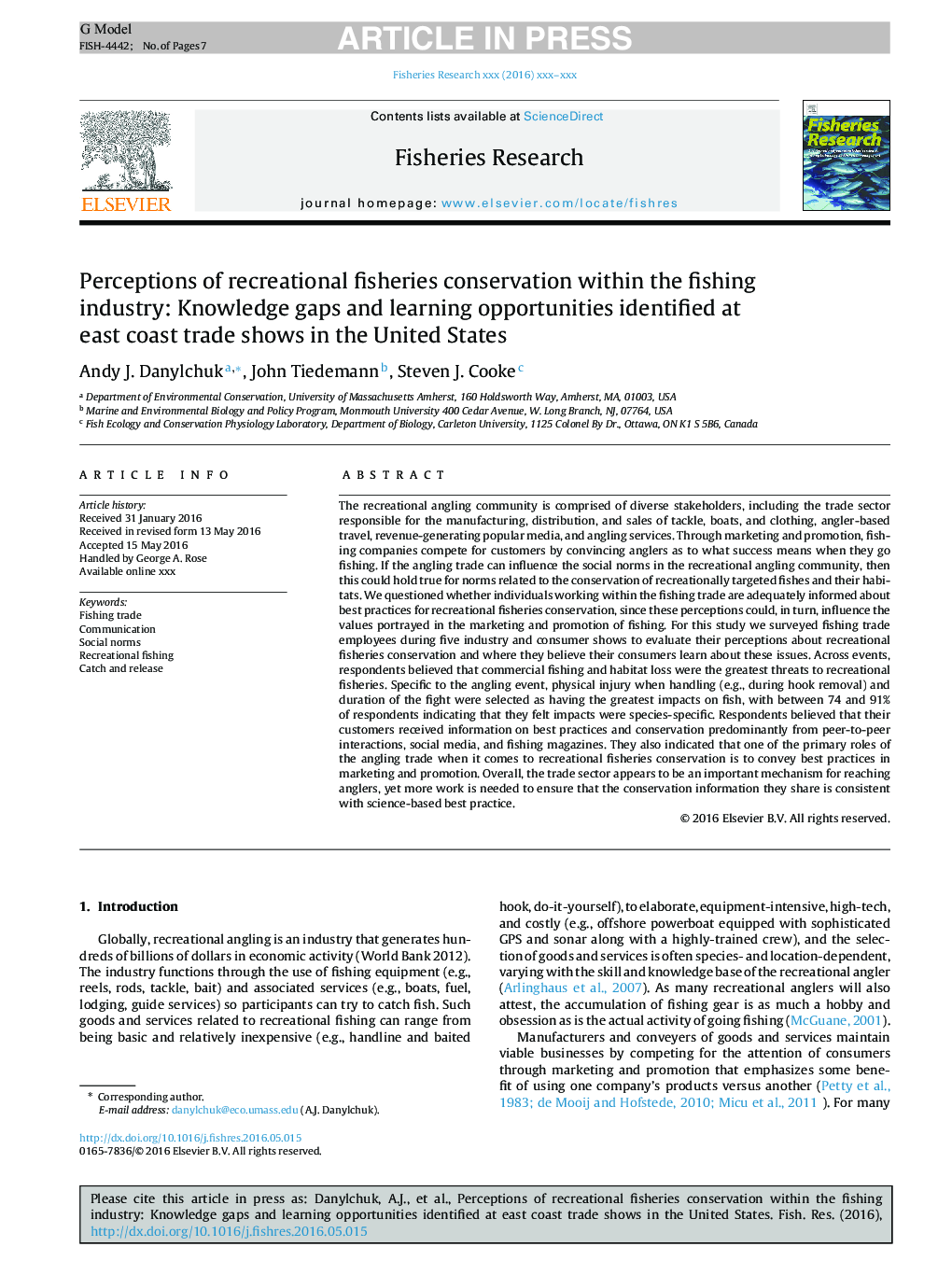| Article ID | Journal | Published Year | Pages | File Type |
|---|---|---|---|---|
| 5765677 | Fisheries Research | 2017 | 7 Pages |
Abstract
The recreational angling community is comprised of diverse stakeholders, including the trade sector responsible for the manufacturing, distribution, and sales of tackle, boats, and clothing, angler-based travel, revenue-generating popular media, and angling services. Through marketing and promotion, fishing companies compete for customers by convincing anglers as to what success means when they go fishing. If the angling trade can influence the social norms in the recreational angling community, then this could hold true for norms related to the conservation of recreationally targeted fishes and their habitats. We questioned whether individuals working within the fishing trade are adequately informed about best practices for recreational fisheries conservation, since these perceptions could, in turn, influence the values portrayed in the marketing and promotion of fishing. For this study we surveyed fishing trade employees during five industry and consumer shows to evaluate their perceptions about recreational fisheries conservation and where they believe their consumers learn about these issues. Across events, respondents believed that commercial fishing and habitat loss were the greatest threats to recreational fisheries. Specific to the angling event, physical injury when handling (e.g., during hook removal) and duration of the fight were selected as having the greatest impacts on fish, with between 74 and 91% of respondents indicating that they felt impacts were species-specific. Respondents believed that their customers received information on best practices and conservation predominantly from peer-to-peer interactions, social media, and fishing magazines. They also indicated that one of the primary roles of the angling trade when it comes to recreational fisheries conservation is to convey best practices in marketing and promotion. Overall, the trade sector appears to be an important mechanism for reaching anglers, yet more work is needed to ensure that the conservation information they share is consistent with science-based best practice.
Related Topics
Life Sciences
Agricultural and Biological Sciences
Aquatic Science
Authors
Andy J. Danylchuk, John Tiedemann, Steven J. Cooke,
